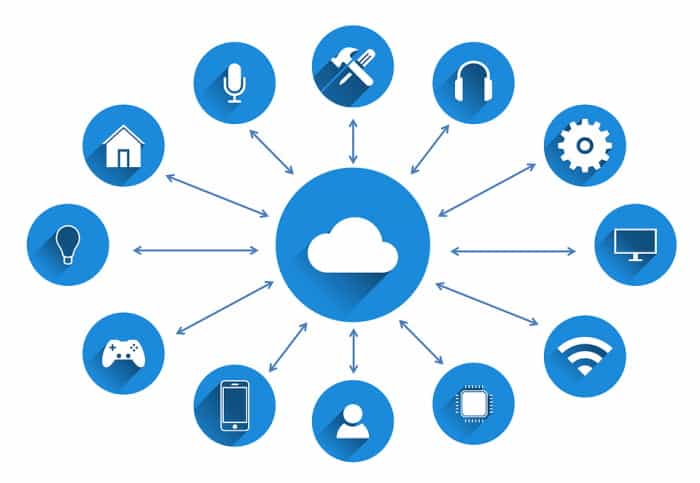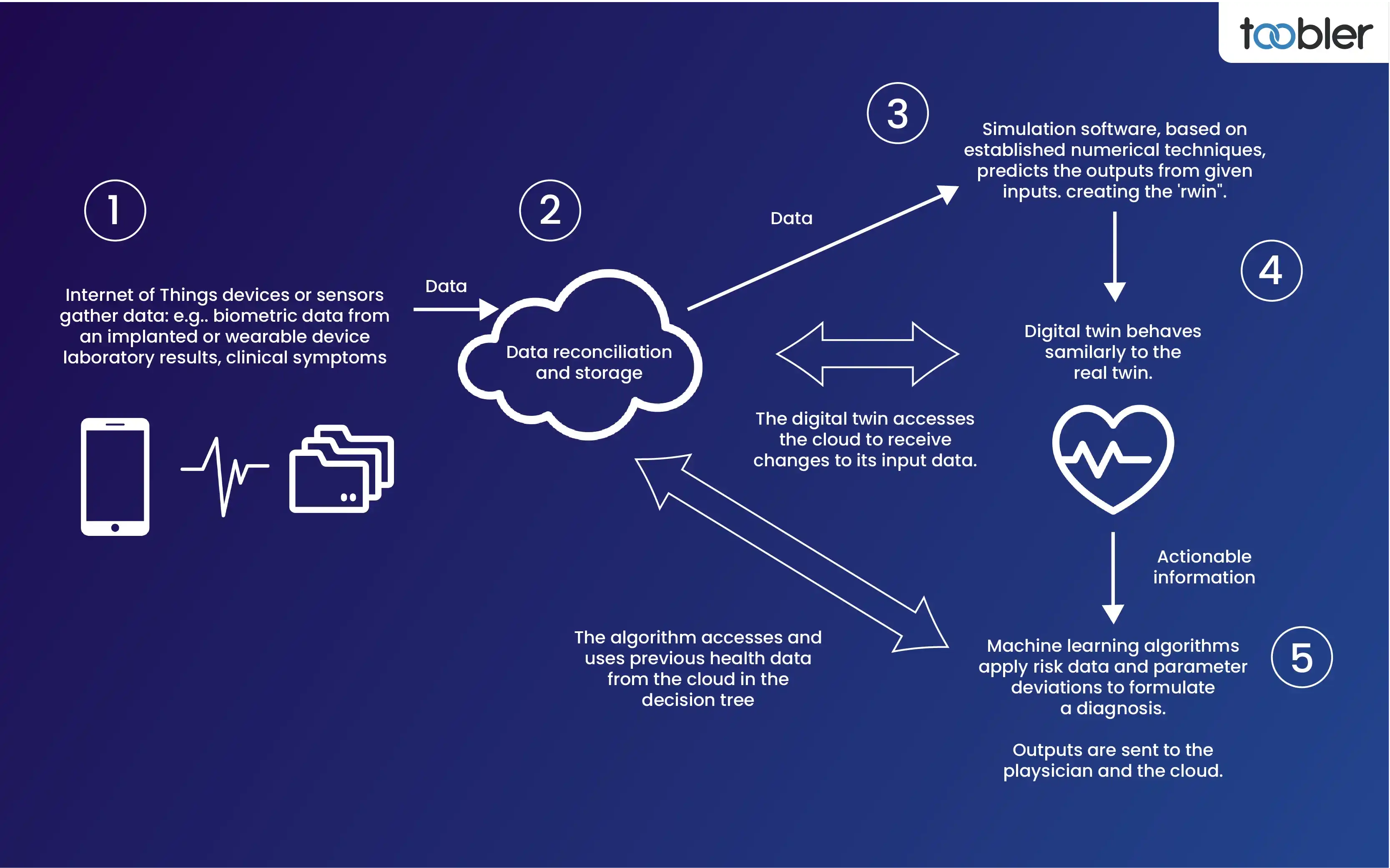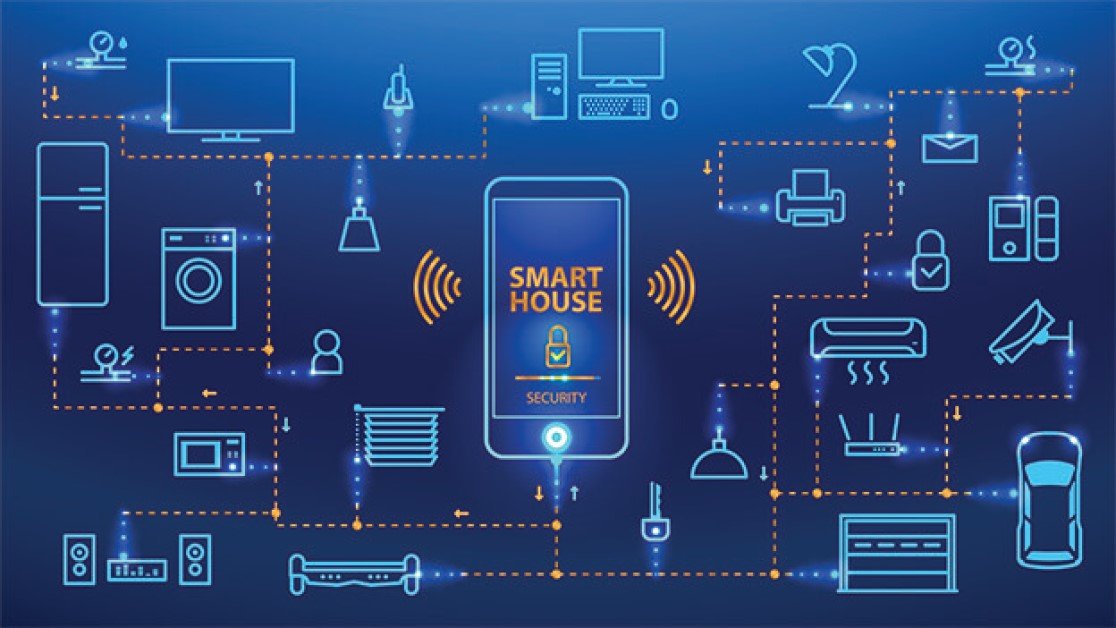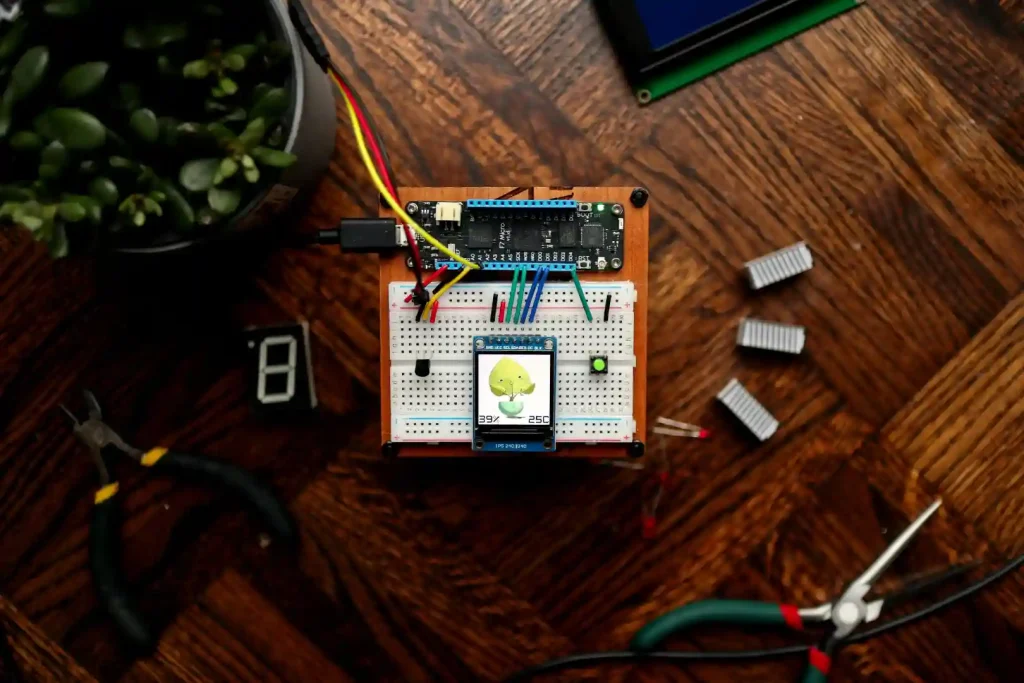The IoT Revolution is Here – And It's Creating Opportunities Everywhere
I remember sitting in a coffee shop in Toronto last year, watching a woman adjust her home's thermostat from her phone while waiting for her latte. She mentioned she could also check if she'd locked her front door and turn on the lights before getting home. That moment really hit me – this wasn't science fiction anymore. The Internet of Things had quietly become part of everyday life, and most people didn't even realize how much it was changing the world around them.
Fast forward to 2025, and IoT isn't just about smart homes anymore. It's transforming healthcare, manufacturing, agriculture, transportation, and pretty much every industry you can think of. Canadian companies are racing to implement IoT solutions, and there's one big problem they're all facing: there aren't enough people who actually know how to work with these technologies. That's creating a massive opportunity for anyone willing to learn these skills.
The truth is, IoT skills have become incredibly valuable, and I've watched friends and colleagues completely transform their careers by diving into this field. Some were coming from totally different backgrounds – one friend was working retail before learning IoT development, and now she's helping design smart city infrastructure in Vancouver. The demand is real, the pay is competitive, and the work is genuinely interesting because you're building things that connect the physical and digital worlds.
If you've been thinking about learning something new that could actually boost your career prospects, IoT might be exactly what you're looking for. Let me walk you through why these skills are worth your time in 2025, what the job market actually looks like in Canada, and how you can get started without needing a computer science degree.
The Canadian Job Market is Hungry for IoT Talent
Let's talk numbers for a second. According to recent industry reports, Canadian companies are expected to invest over $7 billion in IoT solutions this year alone. That's not just happening in tech hubs like Toronto and Vancouver – cities like Calgary, Montreal, and even smaller urban centers are seeing serious IoT adoption. When companies invest that much money in technology, they need people who can actually implement it, maintain it, and make it work.
What surprised me most when I started researching this was how diverse the opportunities are. You've got traditional tech companies building IoT platforms, sure, but you've also got agriculture companies in Saskatchewan using IoT sensors to monitor crop conditions, healthcare providers in Ontario implementing remote patient monitoring systems, and manufacturing plants across the country upgrading to smart facilities. Every single one of these implementations needs skilled professionals.
The salary ranges are pretty compelling too. Entry-level IoT positions in Canada typically start around $55,000 to $70,000, which is decent for someone just starting out. With a few years of experience, you're looking at $80,000 to $110,000, and senior IoT architects or specialists can easily pull in $120,000 or more. Those numbers are even higher in major cities, though obviously cost of living factors in.
What makes IoT skills particularly valuable right now is that they're still relatively rare compared to the demand. Unlike more saturated fields where you're competing with thousands of other candidates, having solid IoT knowledge genuinely makes you stand out. I've talked to hiring managers who say they struggle to find qualified candidates for IoT roles, which means if you have the skills, you're in a strong negotiating position.
Industries Leading IoT Adoption in Canada
Understanding where the opportunities are helps you focus your learning. In Canada, certain sectors are particularly aggressive about IoT implementation. The energy sector, especially in Alberta, is using IoT for everything from pipeline monitoring to smart grid management. Healthcare providers are implementing telehealth solutions and remote monitoring devices. Agriculture is getting high-tech with precision farming. Manufacturing is all about Industry 4.0 and smart factories. And let's not forget retail, where IoT is transforming inventory management and customer experience.
Each of these industries has slightly different needs, but they all require the same foundational IoT knowledge: understanding how devices connect and communicate, how to handle the data they generate, basic networking concepts, and some programming ability. Once you have those fundamentals, you can specialize in whichever industry interests you most.
What IoT Skills Actually Mean in Practice
When people say "IoT skills," it can sound pretty vague. Let me break down what employers are actually looking for, because it's more accessible than you might think. You don't need to be an expert in everything – most people specialize in certain areas based on their interests and the specific jobs they're targeting.
At the core, IoT is about connecting physical devices to the internet so they can collect, exchange, and act on data. That means you need some understanding of hardware (the physical devices and sensors), networking (how these devices communicate), software (the programs that make everything work), and data management (what to do with all the information these devices generate). It sounds like a lot, but you build these skills progressively.
On the hardware side, you should be familiar with common IoT devices and sensors – things like Raspberry Pi, Arduino, various types of sensors (temperature, motion, humidity, etc.), and actuators that make things happen in the physical world. You don't necessarily need to design circuit boards from scratch, but understanding how these components work and connect is important.
Networking knowledge is crucial because IoT devices need to communicate, often wirelessly. That means understanding protocols like MQTT, CoAP, and HTTP/HTTPS, knowing the difference between WiFi, Bluetooth, Zigbee, and cellular connections, and grasping basic network security concepts. Security is especially important because IoT devices can be vulnerable entry points for cyberattacks if not properly secured.
The Programming Side of Things
Programming scares some people away from IoT, but honestly, you don't need to be a coding genius. Most IoT work uses relatively straightforward programming languages like Python, JavaScript, or C/C++. Python is particularly popular because it's beginner-friendly and has tons of libraries for working with IoT devices and data. If you can write basic scripts to collect sensor data, process it, and trigger actions based on certain conditions, you're already doing IoT programming.
Cloud platforms are another big piece of the puzzle. Services like AWS IoT, Microsoft Azure IoT Hub, and Google Cloud IoT help manage large numbers of devices and handle the massive amounts of data they generate. Getting certified in one of these platforms can significantly boost your employability because most companies use cloud services for their IoT implementations.
Data analysis skills are increasingly important too. IoT devices generate enormous amounts of data, and being able to analyze that data, spot patterns, and extract meaningful insights is valuable. You don't need to be a data scientist, but understanding basic data visualization, working with databases, and maybe some machine learning fundamentals will set you apart.
Learning Paths That Actually Work
One of the best things about IoT is that you can start learning with relatively little investment. Unlike fields that require expensive equipment or software, you can get started with IoT for under $100. A Raspberry Pi starter kit costs around $75-100 and gives you everything you need to build your first IoT projects. Combine that with free online resources, and you've got a complete learning environment.
I always recommend people start with hands-on projects rather than just watching tutorials. Build something simple, like a temperature monitor that logs data to the cloud, or a motion detector that sends you notifications. Actually working through the challenges of making something work teaches you more than any lecture could. Plus, you'll have portfolio projects to show potential employers, which is incredibly valuable when you're trying to break into the field.
For structured learning, there are some excellent online courses specifically focused on IoT. Platforms like Coursera, edX, and Udemy offer IoT courses ranging from beginner to advanced levels. Some Canadian colleges and universities also offer IoT certificate programs that can be completed online or part-time, which is great if you're working full-time and want to transition gradually.
Community learning shouldn't be overlooked either. Cities across Canada have maker spaces and tech meetups where people work on IoT projects together. Toronto, Vancouver, Montreal, Calgary, and other cities have active IoT communities. These groups are usually super welcoming to beginners, and you can learn a ton by seeing what others are building and asking questions. Plus, networking with people in the field can lead directly to job opportunities.
Building a Portfolio That Gets Attention
This is something I wish someone had told me earlier: your portfolio matters more than your resume in technical fields like IoT. Employers want to see what you can actually build, not just read about your skills. Even if you're self-taught and don't have formal credentials, a strong portfolio of projects demonstrates your abilities in a way that certificates alone can't.
Start with simple projects and gradually increase complexity. Document everything on GitHub or a personal website – write about what you built, why you made certain decisions, what challenges you faced, and how you solved them. This shows not just technical skills but also problem-solving ability and communication skills, which are super important in any job.
Some project ideas that work well for portfolios: a home automation system, environmental monitoring setup, smart garden that waters plants automatically, personal health tracking device, or a small-scale asset tracking system. The specific project matters less than showing you understand the full IoT stack – hardware, connectivity, data handling, and user interface.
The Reality of Working in IoT
Let me be real with you about what working in IoT is actually like, because it's not all exciting cutting-edge technology. There's definitely exciting stuff – you get to work on problems that blend hardware and software in interesting ways, you often see tangible results from your work, and you're part of a field that's genuinely changing how the world works. But there are also challenges.
IoT projects can be frustrating because you're dealing with physical hardware that doesn't always behave as expected, networks that can be unreliable, and devices that might be deployed in challenging environments. I've heard stories about sensors failing because nobody considered that they'd be exposed to extreme cold in Canadian winters, or network connectivity issues in rural areas where cellular coverage is spotty. You need patience and good problem-solving skills.
The work is also pretty interdisciplinary, which is great if you like variety but can be overwhelming if you prefer to specialize deeply in one thing. On any given day, you might be troubleshooting hardware issues, debugging software, analyzing data, talking to clients about requirements, and researching new technologies. That variety keeps things interesting, but it also means you're constantly learning and adapting.
Security concerns are a big part of IoT work, and honestly, this is where the field still has a lot of growing to do. IoT devices have been responsible for some significant security breaches because they're often not designed with security as a priority. As an IoT professional, you need to take security seriously – understanding encryption, secure authentication, regular updates, and best practices for protecting devices and data. This responsibility can feel heavy sometimes, but it's also what makes the work important.
Remote Work and Flexibility
One huge advantage of IoT skills is that much of the work can be done remotely. Obviously, initial hardware setup and troubleshooting might require being on-site, but a lot of IoT work involves software development, data analysis, and system monitoring that can happen from anywhere with a good internet connection. Many Canadian companies now offer hybrid or fully remote IoT positions, which gives you flexibility in where you live and work.
This has been particularly valuable for people living outside major tech hubs. You don't have to move to Toronto or Vancouver to work in IoT anymore – you can live in smaller cities or even rural areas and still access great opportunities. Some companies are specifically hiring across Canada to build distributed teams, which opens up the field to way more people.
Future-Proofing Your Career
Here's what really sold me on IoT skills being worth learning: they're incredibly future-proof. We're still in the early stages of IoT adoption. Estimates suggest there will be over 75 billion connected devices worldwide by 2030, and Canada is following that global trend. As more devices come online and more industries adopt IoT solutions, the demand for skilled professionals will only increase.
IoT also sits at the intersection of several major technology trends. It connects with artificial intelligence and machine learning (analyzing IoT data), edge computing (processing data closer to where it's generated), 5G networks (enabling faster and more reliable device connectivity), and sustainability initiatives (using IoT to reduce energy consumption and environmental impact). Learning IoT gives you exposure to all these areas, making your skills broadly applicable.
The skills you develop working with IoT are also highly transferable. Understanding how to work with APIs, handle data at scale, implement security measures, and think about system architecture are valuable in many technical roles beyond just IoT. So even if the specific IoT technologies change over time, the fundamental skills remain relevant.
Canadian government initiatives are also supporting IoT development. There's funding for smart city projects, agricultural technology, clean tech solutions, and digital transformation across various sectors. This government support creates additional opportunities and job security in the field. When both private companies and public sector organizations are investing heavily in IoT, you know it's not just a passing trend.
Getting Started Today
If I've convinced you that IoT skills are worth learning, you're probably wondering what to do next. The good news is you can start today, literally right now. Begin by exploring what IoT actually looks like in practice – follow some IoT blogs, watch YouTube channels that show IoT projects, join online communities where people discuss IoT implementation. Just immersing yourself in the space helps you understand the landscape.
Order a starter kit and commit to building at least one simple project. Pick something that solves a real problem you have, even a small one. Want to know if your basement is getting too humid? Build a humidity monitor. Curious about temperature variations in different rooms of your house? Create a multi-room temperature tracking system. These simple projects teach you the fundamentals while giving you something practical.
Consider taking an introductory online course to build structured knowledge alongside your hands-on learning. Look for courses that balance theory with practical application. Many platforms offer free trials or audit options, so you can check them out before committing financially. Canadian platforms like Coursera often feature courses from Canadian universities, which can be nice if you want content specifically relevant to the Canadian context.
Connect with the community, both online and locally. Join IoT-focused groups on LinkedIn, participate in Reddit communities like r/IOT, and look for local meetups or maker spaces. Don't be shy about asking questions – the IoT community is generally pretty helpful to newcomers. People who work in this field tend to be passionate about it and happy to share knowledge.
Making the Career Transition
If you're currently working in a different field and thinking about transitioning to IoT, know that it's absolutely possible. Many people in IoT came from other backgrounds – I know folks who transitioned from teaching, trades, retail, and traditional IT roles. The key is building demonstrable skills through projects and being able to talk about what you've learned and created.
Start by looking at how IoT might connect to your current industry. If you're in healthcare, learn about medical IoT devices and remote patient monitoring. In agriculture? Focus on precision farming and agricultural sensors. This approach lets you leverage your existing industry knowledge while adding technical IoT skills, making you particularly valuable to employers in that sector.
Don't wait until you feel completely ready to start applying for jobs. Once you have a few solid projects in your portfolio and understand the fundamentals, start applying for junior positions or internships. Many Canadian companies are willing to hire people without traditional computer science degrees if they can demonstrate practical IoT skills and genuine enthusiasm for learning.
The Bottom Line on IoT Skills
So are IoT skills worth learning in 2025? Based on everything I've seen and experienced, absolutely yes – but with some important caveats. They're worth it if you're genuinely interested in technology and problem-solving, if you're willing to put in the time to learn both hardware and software concepts, and if you can handle the occasional frustration that comes with working at the intersection of physical and digital systems.
The Canadian job market needs IoT professionals right now, and that need is only growing. The skills are accessible to learn without requiring enormous investment, the work is interesting and varied, the pay is competitive, and the field has strong long-term prospects. Plus, you're working on technology that genuinely improves people's lives and makes systems more efficient and sustainable.
What makes IoT particularly appealing in 2025 is that we're past the hype phase and into real implementation. Companies aren't just experimenting anymore – they're deploying IoT solutions at scale and need people who can make them work reliably and securely. That creates stable, meaningful opportunities for skilled professionals across Canada, from major cities to smaller communities.
If you've been looking for a field that combines technical challenge with practical impact, that offers good career prospects without requiring a traditional four-year degree, and that keeps evolving so you're always learning something new, IoT might be exactly what you're looking for. The opportunities are there, and 2025 is an excellent time to start building these skills.




